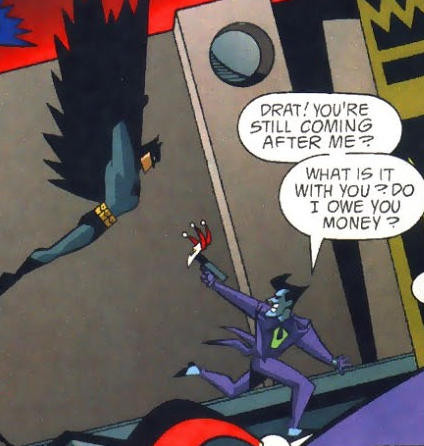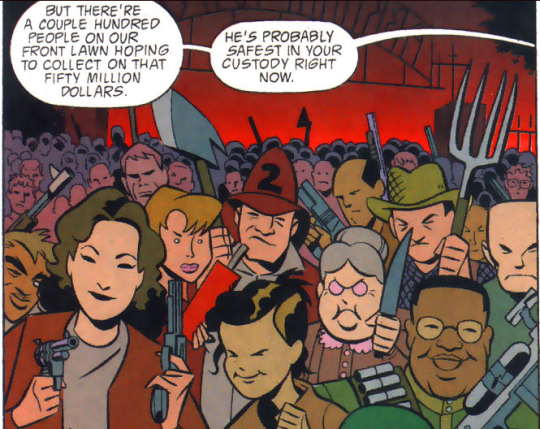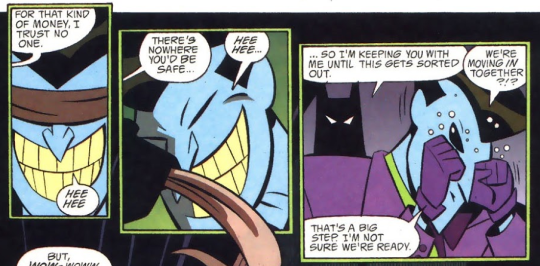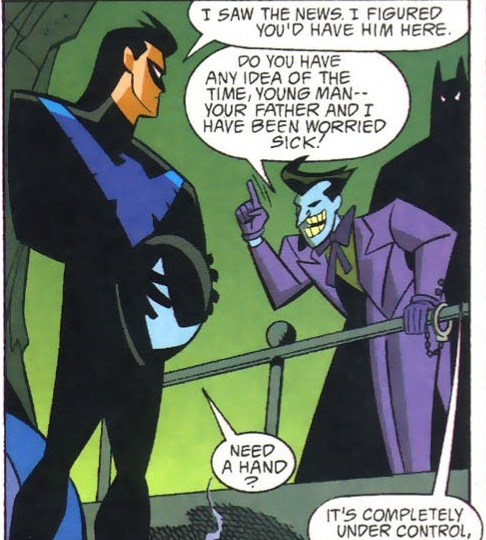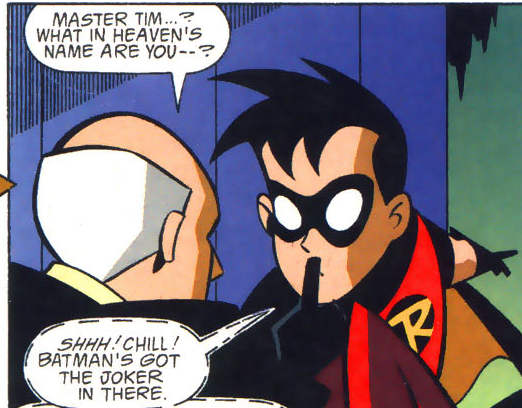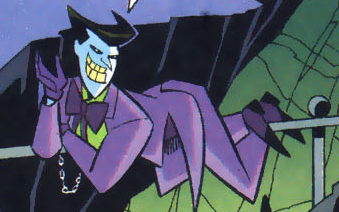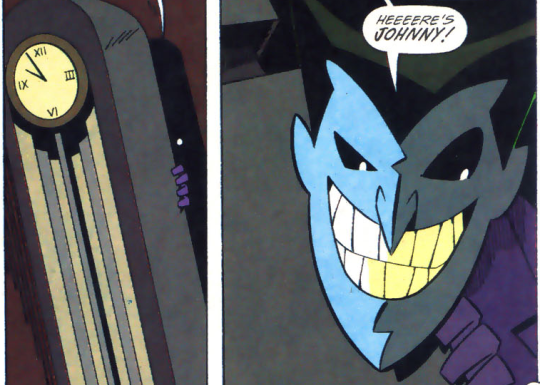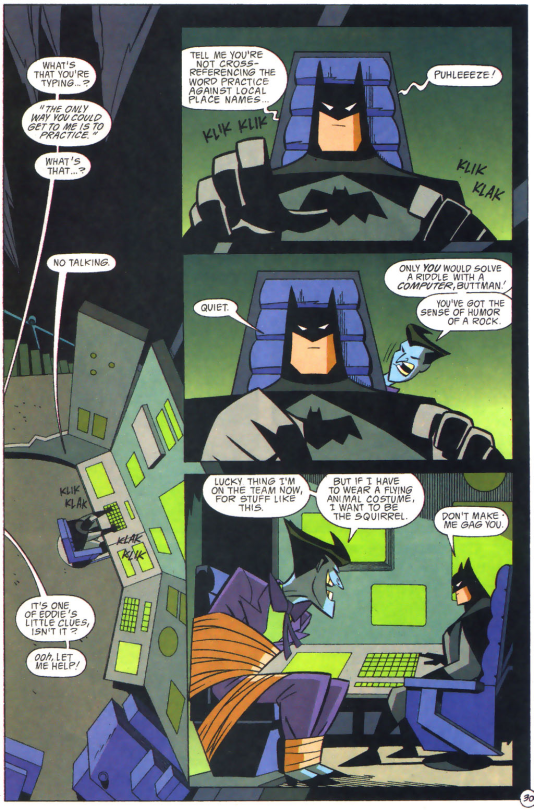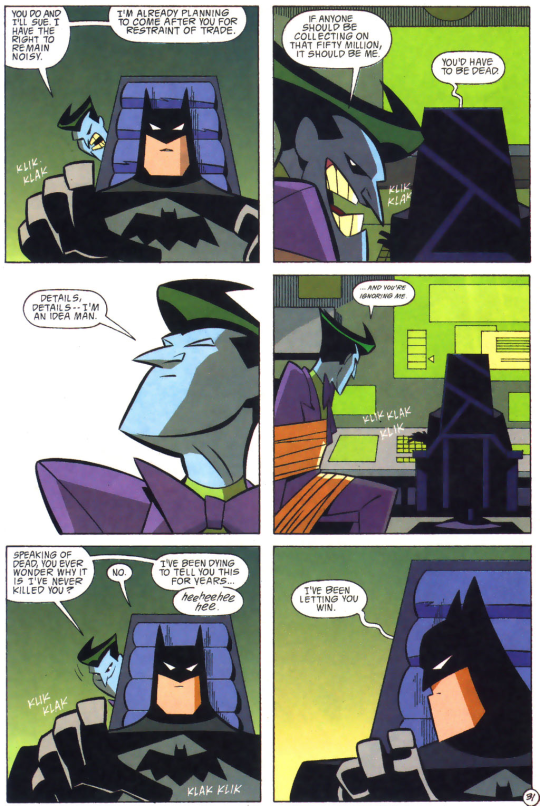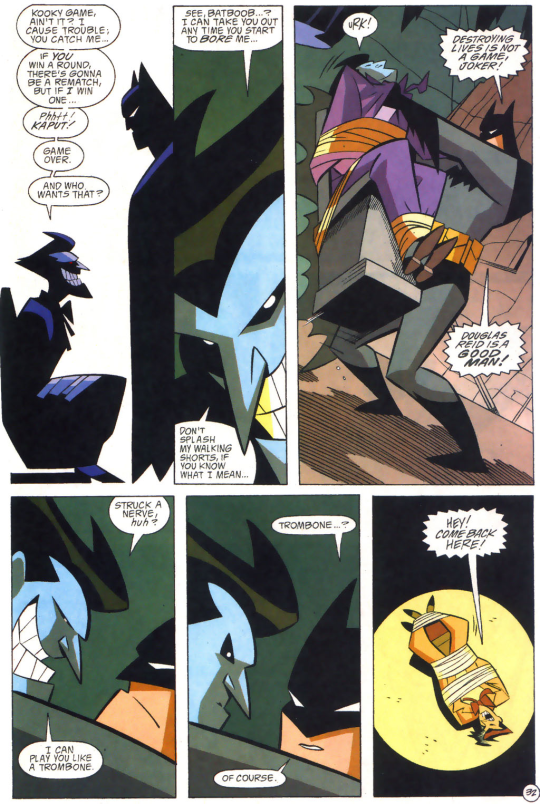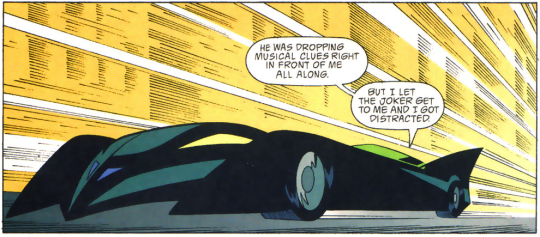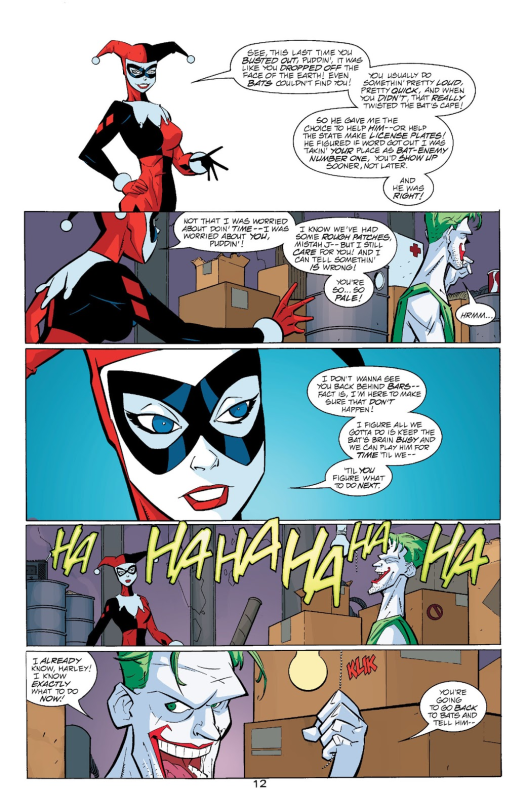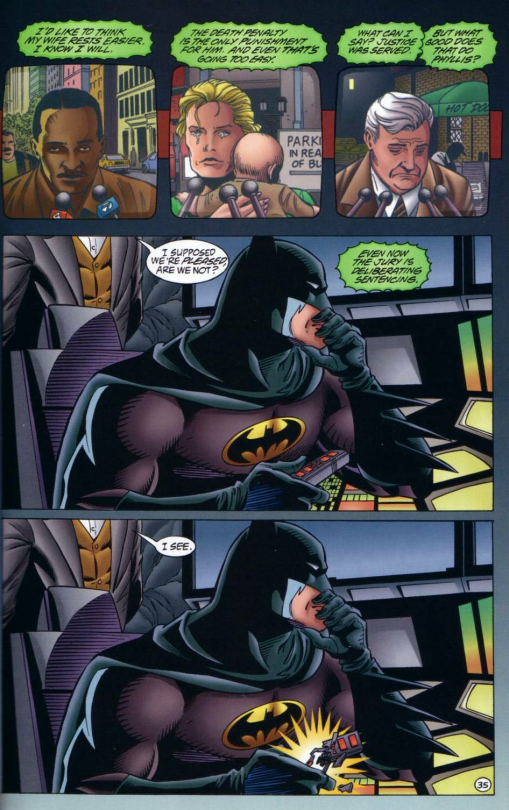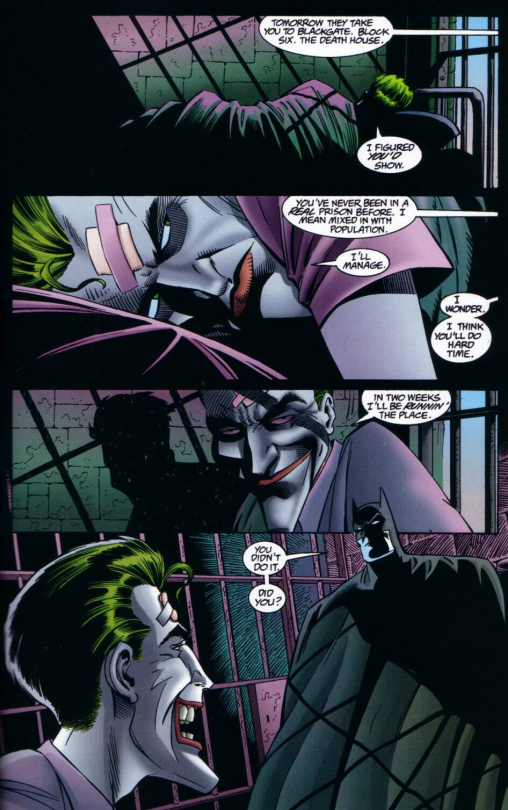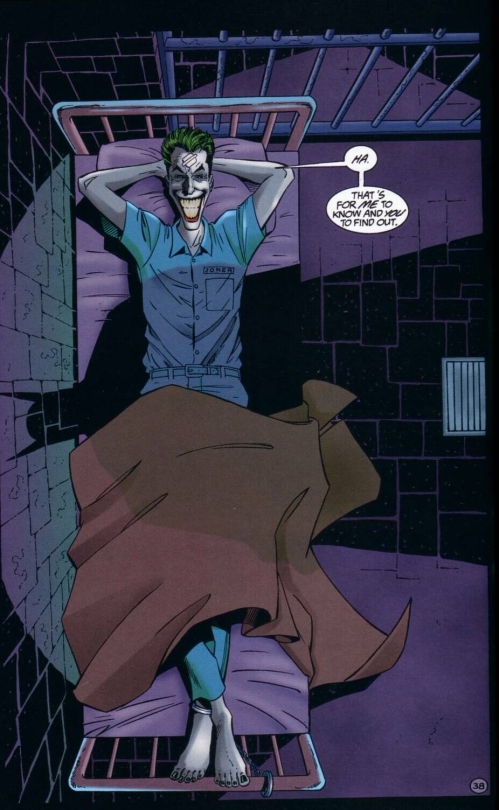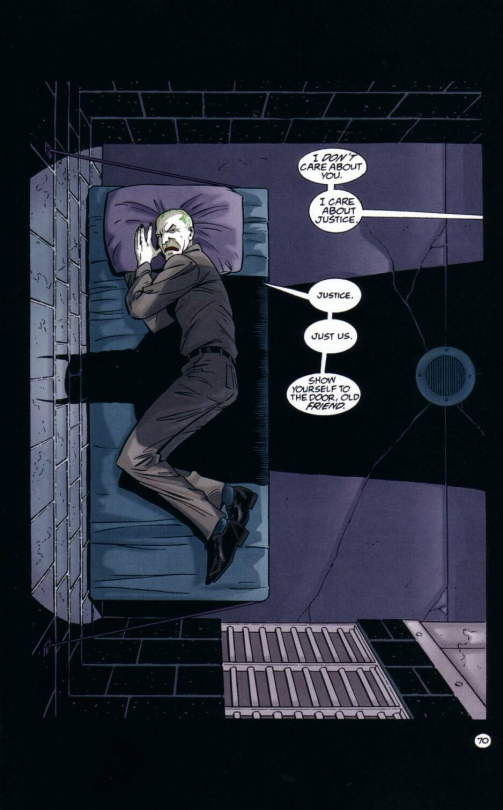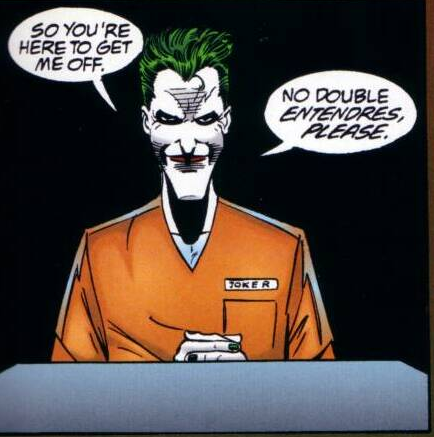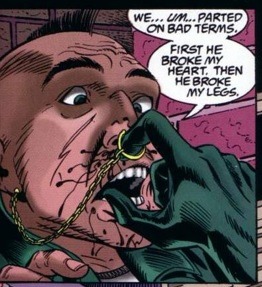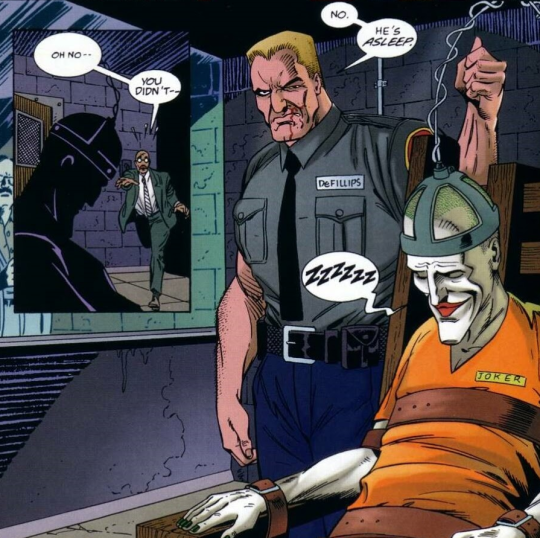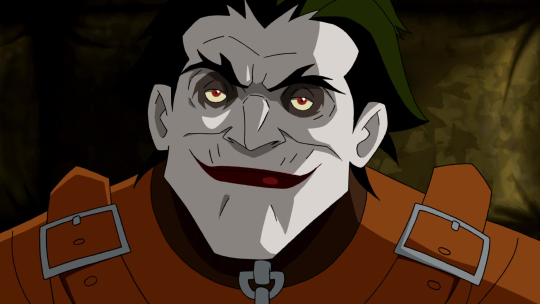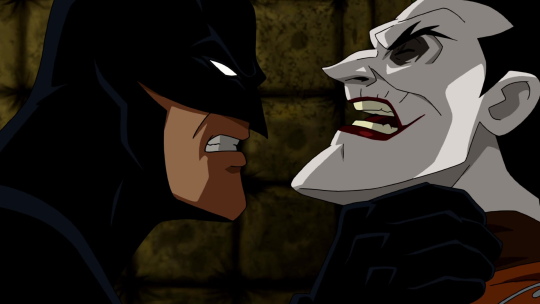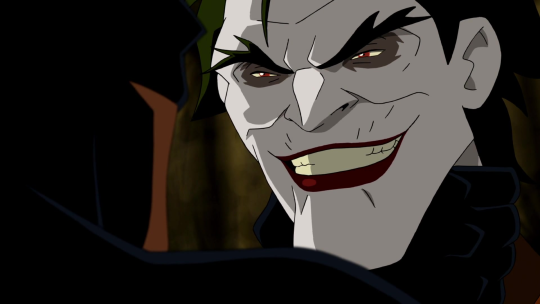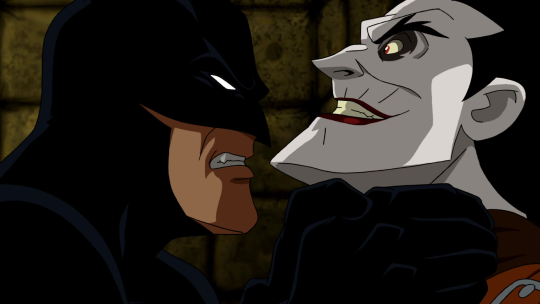
DID KING JUST INDIRECTLY CONFIRM CERTAIN THINGS ABOUT JOKER & HARV
idk if it’s just out of context but at least more people know that Joker ain’t straight and Harvey is bi..
now Tom King if you could please drop the predatory gay that’ll be swell
thanks for confirming sexualities but how about learning how to write and making a proper sentence
☝☝☝☝☝
there are, admittedly, instances of joker being written through the lenses of the predatory gay man trope but i honestly believe this literally wasn’t one of them. it’s one of those rare moments when he was treated on the same level as selina, it had all come down to the two of them & their importance/roles in batman’s life seemed to have been accepted by both, like it’s the one time joker IS actually treated as a viable love interest as much as selina (”we all loved him”; “i could give him that and he’d love me”)
Hope you don’t mind me adding to this because I agree that the predatory gay trope is not what we ended up getting from either #48 or #49, though until we don’t have #50 to see how it all actually ends it may be too early to say that we won’t
have some confused word vomit no one asked for
Look, I’m usually the first to jump on the King hate bandwagon, always; his run has rubbed me the SUPER wrong way ever since it started, even before the ship bullshit, and from the moment they announced that Joker will be disrupting the wedding I expected them to full on wallow in “dangerous deranged gay villain is gonna try to threaten heterosexual love but they will defeat him in the end cause het love wins the day,” and I was fully dying about it even after #48, which SHOCKED me in that it did treat Joker’s feelings with respect. Respect so painful and so visceral and earnest, in fact, that it brought back a ton of painful memories from when I was in Joker’s exact position (the watching someone you love get engaged and married to someone else one, not the murder people in a church one, for you FBI agents out there), and for that reason I couldn’t really approach it with anything else than intense emotion that it was difficult to untangle. Joker’s confusion, his desperation, his incoherence in the face of something that hurts him, in the face of not just a fundamental end to his way of life but also rejection, felt so acutely personal and real for me that it made me uncomfortable in a way that’s hard to describe. Especially since Bruce’s behavior (most of all, his silence, but also the way he kneels with Joker at the end there, and his one “Amen” that rings so powerful considering how little he says in the entire comic) really reminded me of TKJ in the kind of moment of connection it gave them. The comic has Bruce validating Joker, wanting to give him some sort of closure, and looking, if anything… almost apologetic. Like he’s aware of how much he’s breaking Joker’s heart, and the sacrifices inherent in his decision to marry, and maybe, just maybe, acknowledging his own complicated feelings for the man beside him and how those feelings can never be realized because of who they both are. (Yeah, that may be reaching. But I did see all that in Bruce’s gesture and expression at the end there. Sue me for wishful thinking I guess.)
And I was terrified that #49 was still gonna ruin all that by having Selina swoop in to save her man, defeat the gay menace, and her and Bruce abandoning Joker to ride off into the sunset. That, to me, is how it would have played out if they went the “predatory gay” trope without any nuance.
That’s not what happened.
Instead, from the start, we got is Joker and Selina being framed not only as equal rivals on the tug of war over Bruce, the fight between them only takes up a couple panels and the rest is just… conversation. Painfully honest, actually respectful on both sides, and still laced with hurt that the comic paints as tragic and legitimate. The comic does seem to favor Selina’s point of view in some respect, but in the end, when it takes a stand, it does seem to support Joker’s final conclusions because they ring true with Batman’s long history and the superhero genre conventions as a whole. Who knows Batman better? Who knows and understands him truly? Who would bring him true happiness? How is the wedding impacting the entire city and its mythology, not just those directly involved? This whole conversation reads like a meta examination of Batman’s entire mythos, and in this conversation, it is Joker who ultimately voices the points that seem the most relevant from a meta standpoint: Batman cannot be happy and stay Batman. So the question follows, if Batman cannot be Batman anymore, can he actually be happy? Is he the kind of man who even can settle? (And, conversely, is Selina? To me it’s a resounding no on both). It’s fitting that Joker is the one articulating this, and speaking in a language that seems to encapsulate metaphors and meta-narrative, given the kind of character he is and how he’s historically been aware of being in a narrative and of the norms that govern them all. That, alone, validates him. That, in that one moment at the end of #49, makes him right.
And we connect that to what @ufonaut already said about Joker’s feelings for Batman being acknowledged and accepted as no less legitimate and viable than Selina’s, we get something profound. Notice that Selina doesn’t refute Joker when he claims that he could have given Batman the kind of happiness she’s bringing him, too, if he wanted to. If he could. She doesn’t argue against that, and seems to agree. She understands Joker’s importance in Bruce’s life and the connection between the two men, and the root of Joker’s pain. She doesn’t rub it in his face or gloat that “ha, Batman chose ME” – well, okay, not too much, there’s still some of it there but at least not during the emotional crux of the issue. She doesn’t mock him for his feelings, or treat them as something deviant. Instead, just like Bruce in the earlier issue, she validates him by talking to him respectfully, even companionably, and some of it is definitely a front to stall and distract Joker but some of it rings genuine as well. Like maybe she wants to talk about all this, and understands that in that moment, Joker is the one she can talk to because their feelings for Bruce are of the same flavor, and just as deep.
Now, compare all that to a different comic that relied heavily on the predatory gay trope – Nu52′s “Death of the family”/”Endgame.” Both stories have pretty similar framing: Joker sees Batman distancing himself from him and picking someone else, Joker is jealous, wants to reassert himself in Batman’s life by force and violence because it’s the only way he knows how to do that. Both stories frame Joker’s actions in the language of thwarted love. In Snyder’s arcs, Joker tries to win Bruce over by attacking, hurting and kidnapping Bruce’s family, the people Joker knows Bruce loves. Violently so. He is cold and methodical in enacting his plans, he is grotesque – actually, horroresque would be a better way to put it – and he speaks in sexual and romantic innuendo as he brings his mauled ruin of a face close to Bruce in a way that is meant to evoke disgust in the reader. The comic is full of shock value, and collateral damage is something that Joker treats matter of factly, with a coldness and calculation of any serial killer. Then, even though Bruce’s behavior does also lend credence to Joker’s claims about their relationship, Bruce verbally rejects him, and then Joker comes back even darker and more vengeful than ever, intent on destroying the entire city and the two of them in it to pay for his broken heart.
I’m not condemning Nu52′s arc this way, please don’t assume that – I still love it for what it is and what it does to validate the Batman/Joker connection. But it does villify Joker to an almost unbelievable degree, and the fact that it relies so heavily on basing Joker’s actions on his romantic feelings for Batman, and how the story frames those feelings (especially DOTF, because Endgame does, in the end, give him validation) really does evoke the predatory gay trope. As many of other Joker comics do. I can acknowledge that and still appreciate them for other reasons, in my own way.
But yeah, compared to all that, King’s Joker isn’t calculated – he’s confused and hurt and acting out without much forethought. He says he set out to kill Selina, but unlike DOTF, the fight between them isn’t one-sided and geared towards torture porn, and while brutal, it’s swift and unexploitative. And while Joker’s romantic feelings are definitely validated and presented as part of his motive, that’s more in the subtext, because textually, his motives are mainly articulated to be: preserve Batman. Preserve himself and their shared narrative through Batman, with death if necessary. Which, yes, still makes him a villain of the story, even if a villain who is ultimately right – but I don’t think his gayness is used to motivate said villainy. Like it was stated above, it’s instead acknowledged as the part of him that humanizes him, that turns him into a tragic figure, that’s acceptable and understandable, even as he does violence on the main characters. And that sort of framing, to me, paints him not so much as the predatory gay trope but rather, a tragic villain who also happens to be gay and in love with the hero. And that, to me, makes all the difference.
Not sure if I was able to articulate where I see the line between the two quite well enough, but yeah, it does all depend on the framing. It may also all change when #50 drops with its conclusion, I don’t know. But after reading both #48 and #49, I am somewhat won over, and at least I can await #50 with some degree of inner peace because what we got really is so much better and more nuanced than what I fully expected we’d get.
Also, yeah I really can’t overlook how King casually invalidated edgy fanboy theories about how Batman kills J at the end of TKJ and gave credence to “the queer silence of the killing joke” in one single speech bubble. Gotta give the man kudos for that alone.


